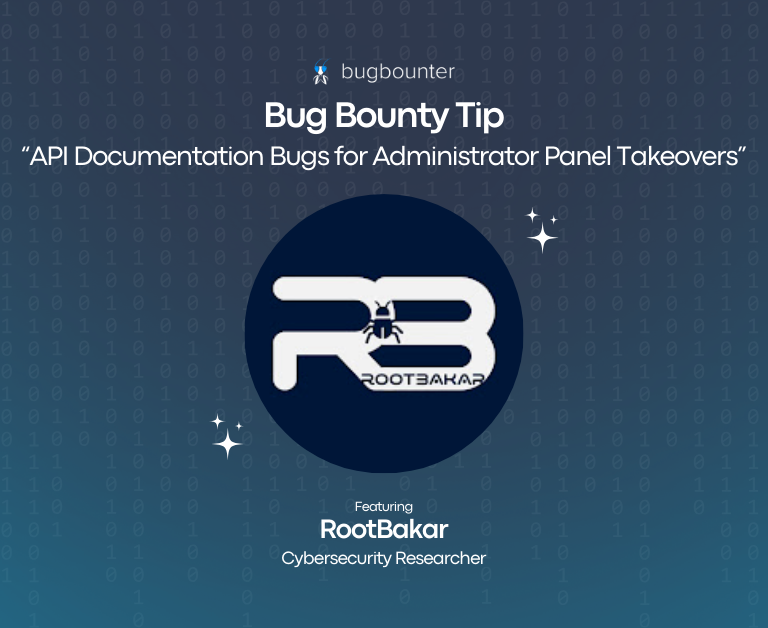Did you know that the more money a startup raises, the more likely it is to be hacked? It is safe to say that every 39 seconds, there is a new attack on the web. Data also shows that startups are increasingly getting vulnerable to data breaches with each round of funding. It is not just the question of losing data; brand reputation and customer loyalty are also at stake.
As an investor of a startup, it is essential to understand the role of cybersecurity measures and how you can strengthen it with BugBounter. When a startup receives funding, malicious hackers are more likely to target it. Here’s why:
Why are Startups More Attractive to Hack When Funded?
First, the startup will have more resources available, which means that the hacker will have more access to information. Second, the startup will be more likely to have a higher profile, which means that the hacker will be able to gain more attention for their exploits. The startup will be more likely to have a more extensive user base, which means that the hacker will be able to cause more damage.
In short, a funded startup is a much more attractive target for a hacker and should be treated as such. Let’s take a look at why startups need cybersecurity and what they can do to stay secure.
Why Do Startups Need Cybersecurity?
With every corner of the world coming together online, cybercrime has seen an exponential boom. New techniques and proxy methods of orchestrating cyber attacks have been on the rise. Where conglomerates ran ahead with investing in infrastructure to combat it, small startups have had to balance out a new cost in their sheet that they had not envisioned.
Malicious hackers don’t need a huge team to orchestrate an attack; they need to find the growing business and build backward from deprioritized cybersecurity systems. Startups have been growing in the last few years due to a new wave of investment and fresh opportunities to capitalize on; users flock to a new app at a rapid pace because of the novelty, and they spend a disproportionate amount of time on the screen. For every update, testing is the core of checking how the product matches the expectations, but testing is often a go-live process when it’s a start up company. A go-live process is when new features are added without testing them for vulnerabilities.
Since the pandemic began, there have been multiple reports on how the dark web is hungry for data. More than 90% of the dark web is buzzing with hackers getting paid to hack into databases of new businesses. A few sectors are more susceptible to cyber threats because they handle sensitive data like BFSI and healthcare. Auditing is an essential cog in the wheel for ensuring security around the newly added features.
However, startups often tend to miss prioritizing cybersecurity. This is how:
How Startups Overlook Cybersecurity As An Option?
Every startup has a fundamental unique idea in the form of an intellectual property. Every startup’s long-term goal is to extend its services and continue to add to what it is already doing. The startup is keen on developing its product which is not final yet, and its investment goes towards building features and products into its existing offerings. Thus, most startups don’t think about becoming a target for cyber attackers because of the number of people already working in their development teams in different capacities. That’s why they don’t consider cyber security in the short term and look at it as a luxury they can invest in when the time comes. Across different types of startups, they remain vulnerable to cyber thefts if they never build the protection.
Consequences of Not Investing in Cybersecurity
When a person leaves a startup, that enterprise will have an account that’s barely used, which can, in return, cause multiple issues down the road. A startup where passwords don’t change means phishing, and ransomware attacks are always a clickbait ad away. Reports from Cybint put 95% of the responsibility on human errors in making cyber threats that much more accessible than they should be.
Without the necessary security measures, hackers could easily access the startup’s sensitive data, including customer information and financial records. It could result in a loss of business and damage the company’s reputation. Additionally, the company could be subject to fines and other penalties if it is found responsible for a data breach. Finally, a lack of cybersecurity investment could make it difficult for the startup to attract new investors or partners.
In today’s business environment, startups need to be aware of the importance of cybersecurity and take steps to protect themselves from potential threats. There are a few strategies that startups can do to stay secure.
What Can Startups Do to Protect Themselves from Being Hacked?
Two-factor authentication is the stepping stone into cybersecurity for your startup company. An IT security assessment with engineers is needed to understand how they are chaining together the different kinds of authentications and verifications. The assessment helps design the architecture against cyber attacks and prepare against cyber threats. The next step is creating a code structure where you can be notified if any hacker tries to hack into your systems. It will keep the development team on their toes to maintain a high level of information security.
The company’s software team needs to know where the company is exposed. A hacker will try to collect several assets and look around each vulnerability. The goal is to get into the source code, where all the credentials are encoded and stored. A way to get there is by understanding where they are hosting it, AWS, GCP, or any other cloud data platform. Then the hacker can aim at breaking the connection between different infrastructures. The following points should be on your priority list as you build robust cyber security for your startup:
- Build your internal security team
- Try out a vulnerability disclosure program
- Hire white hat hackers and analyze from time to time. Publishing a bug bounty program assists to get the security vulnerabilities in your system detected and reported by cybersecurity experts.
The Paradigm Shift to Address Cybersecurity
To address cybersecurity, there needs to be a fundamental shift in the startup community. Admins and management are responsible for accounting for malicious activities and must educate every part of the organization. From accounts to operations to sales, the awareness to understand the loss from a simple attack has to flow throughout the system. An estimated $20 billion has been paid as ransom pay-outs. The world is taking notice of the necessity of spending on cybersecurity. The market is slated to reach a valuation of $2 trillion by the end of 2022.
Strengthen Your Cybersecurity with BugBounter
Invest in your company with BugBounter‘s bug bounty to build solutions to get your vulnerabilities reported. BugBounter’s bug bounty is a 24/7 available, cost-effective solution that provides high ROI. With BugBounter, you can publish a bug bounty in a short time, and receive your first report within the first 24 hours thanks to our community of more than 2500 cybersecurity experts at your disposal.





